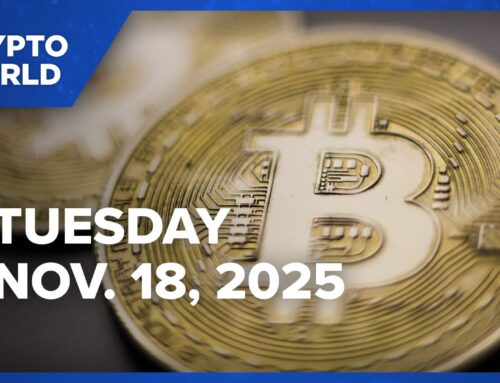Omnicom Allegedly Pivoted A Chunk Of Its Q3 Spend From The Trade Desk To Amazon
November 18, 2025
Amazon has emerged as a formidable challenger to The Trade Desk’s DSP market share. And at least one major agency holding company might be pivoting a large share of its programmatic business to Amazon DSP – at The Trade Desk’s expense.
Two sources at ad tech platforms that observe programmatic bidding patterns told AdExchanger they’ve seen Omnicom agencies shifting their spend from The Trade Desk (TTD) to Amazon DSP this year, particularly during Q3. These sources requested anonymity to protect their relationships with all of the companies involved.
One of these sources said Omnicom appeared to move a double-digit share of its expected Q3 spend from TTD to Amazon DSP. They added that this shift felt like an “inflection point” in the holdco’s programmatic bidding habits, perhaps signaling a growing preference for executing campaigns through Amazon’s platform.
The Trade Desk flatly denied that Omnicom has been pulling spend away from its DSP and shifting it to Amazon. Omnicom would not confirm any change in strategy, but told AdExchanger it works with “a broad spectrum of DSP partners.” Amazon Ads declined to comment.
Whether there’s been a shift in Omnicom’s spending or not, the scrutiny around the issue is another indication of stiffening competition in the DSP market, which has been a hot industry discussion topic this year. The Trade Desk, the largest independent demand-side platform, is fighting off challenges from its emerging Big Tech rival, Amazon, as well as longtime foil Google and others.
Indeed, Amazon is reportedly among the DSPs aiming to undercut TTD’s roughly 20% ad tech take rate in an attempt to win over agencies. Amazon DSP charges no fees for programmatic guaranteed deals on Amazon-owned media and collects a 1% fee for ads on open web publishers.
And some industry watchers believe tougher competition on the DSP side is motivating TTD’s recent efforts to get closer to publishers and expand its footprint on the sell side – such as the launch of its OpenAds auction wrapper last month and TTD’s reported loosening of publisher requirements for integrating its OpenPath direct-to-publisher supply path.
New best friends
If Omnicom is ramping up its relationship with Amazon DSP, it could presage more troubles for The Trade Desk, which has been dogged by criticisms from investors that it isn’t taking growing competition from Amazon seriously enough.
Omnicom Media Group (OMG) did not confirm any holdco-level shifts in its programmatic spending. But an OMG spokesperson said the holdco endorses different DSPs as client needs dictate.
“Omnicom makes recommendations across the major DSPs based on individual client objectives, in the context of both efficiency and effectiveness,” the spokesperson said. “The DSP space is highly dynamic, with capabilities across the board evolving constantly and new features being developed on a continuous basis. We track these developments through the lens of our clients’ needs, and we continue to work with a broad spectrum of DSP partners.”
AdExchanger Daily
Get our editors’ roundup delivered to your inbox every weekday.
While Omnicom is remaining diplomatic in its DSP dealings, multiple sources who spoke to AdExchanger said they’ve expected Omnicom to shift more of its programmatic business to Amazon’s DSP ever since Omnicom won Amazon’s US marketing business last year.
Both of the ad tech platform sources who flagged Omnicom’s shift in spending from TTD to Amazon DSP said the pivot makes sense given that Omnicom holds Amazon’s US marketing account.
And a third source on the agency side who is not affiliated with Omnicom also independently brought to AdExchanger’s attention rumors that multiple agency holdcos are shifting spend from The Trade Desk to Amazon; this source suggested Omnicom would be the most likely holdco to make such a shift, given its closeness with Amazon.
Omnicom declined to answer any questions about whether the growing relationship between Omnicom and Amazon has led to it executing more programmatic campaigns through Amazon’s DSP. And it declined to address whether Amazon offering more favorable ad tech fees than TTD led to any shift in its programmatic strategy.
Omnicom also declined to say whether any apparent shifts in its Q3 spending would continue into Q4 and beyond.
Nothing to worry about
While an ad tech platform observing an agency holdco pivoting a large double-digit share of its spending from one DSP to another could represent a major sea change in the DSP market, there could be other possible explanations.
For one thing, it could indicate that Omnicom is moving more of its spend to TTD’s OpenPath offering. Because OpenPath relies on a direct connection between TTD and publishers, with other ad tech companies cut out of the supply path, that means other platforms have no visibility into OpenPath spending.
However, Omnicom declined to comment on whether it buys inventory through OpenPath at all, or whether it has recently ramped up spending via OpenPath. The Trade Desk also declined to comment on whether Omnicom buys through OpenPath.
If The Trade Desk did, in fact, lose a large share of Omnicom’s programmatic business in Q3, it didn’t ding the DSP’s Q3 earnings.
The Trade Desk reported a strong Q3 earlier this month, including 18% YOY growth in revenue and 16% YOY growth in net profits. It was the company’s third solid quarter after rebounding from its first-ever revenue miss in Q4 last year.
But it remains to be seen what Q4 holds for The Trade Desk this year, and whether pivots in agency spending will be more apparent during the quarter in which brands spend most of their marketing budgets.
Meanwhile, The Trade Desk doesn’t seem to have changed its tune on how it publicly talks about growing competition from Amazon. In fact, as far as Trade Desk CEO Jeff Green is concerned, Amazon doesn’t even really have a DSP to speak of.
“I don’t think Amazon has a DSP as we define it,” Green told investors on the company’s Q3 earnings call. “I think they will have tools to buy owned-and-operated [media] and they play in advertising the way that Facebook does today and the way that I think Google likely will in the future.”
Search
RECENT PRESS RELEASES
Related Post



